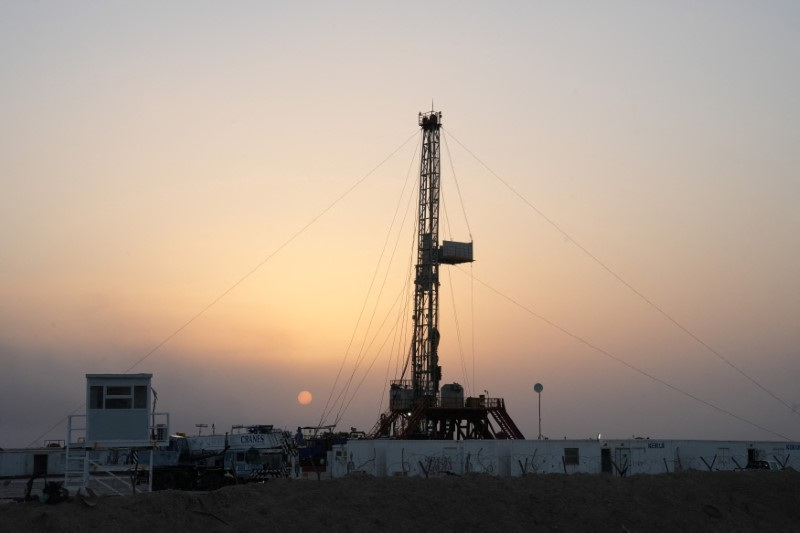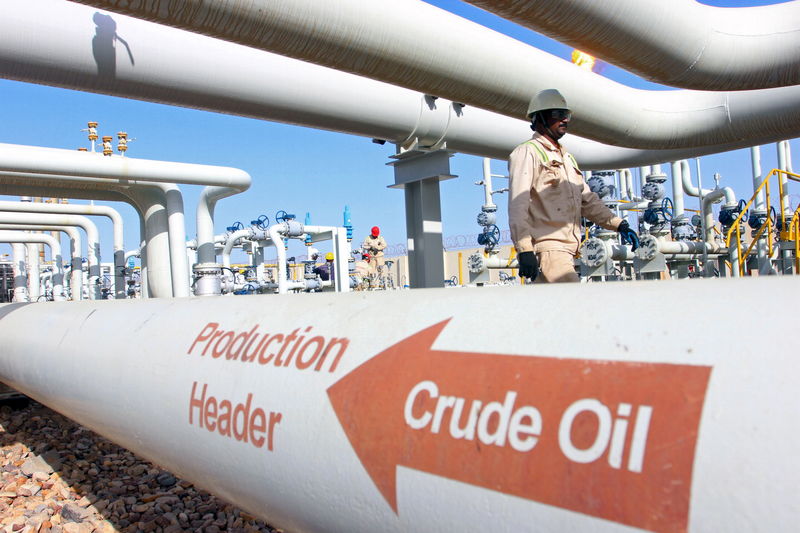By Erwin Seba
HOUSTON (Reuters) – Brent and oil futures fell on Tuesday as traders became less nervous about the potential for a wider war in the Middle East, with Iran yet to respond to threats to retaliate against Israel for the killing of a Hamas official in Tehran.
Benchmark futures fell $1.61, or 1.96%, to $80.69 a barrel. U.S. West Texas Intermediate crude ended up $1.71, or 2.14%, at $78.35 a barrel.
“Markets had priced in an impending attack by Iran on Israel within 24 to 48 hours,” said Phil Flynn, senior analyst at Price Futures Group. “That didn’t happen. The market is taking that risk premium out of the crude oil price.”
The International Energy Agency kept its forecast for global oil demand for 2024 unchanged but lowered its estimate for 2025, citing the impact of subdued Chinese consumption on economic growth.
Brent gained more than 3% on Monday to close at $82.30 a barrel, after reaching the lowest closing price in seven months of $76.30 a week earlier.
Also on Monday, the Organization of the Petroleum Exporting Countries cut forecast demand in 2024, even as the group and its allies, known as OPEC+, aim to increase output from October.
An escalation in the Middle East could threaten the supply of crude oil from key oil-producing regions, but a broader war appeared less likely as Iran suggested renewed ceasefire talks with Hamas could prevent retaliation.
“We are seeing an evaporation of the geopolitical risk premium,” said Jim Ritterbusch, president of Ritterbusch Associates.

The US has been preparing for significant attacks by Iran or its allies in the region as early as this week, White House national security spokesman John Kirby (NYSE:) said on Monday.
Markets are also awaiting Wednesday’s US Consumer Price Index report, which will provide a crucial insight into inflation.


